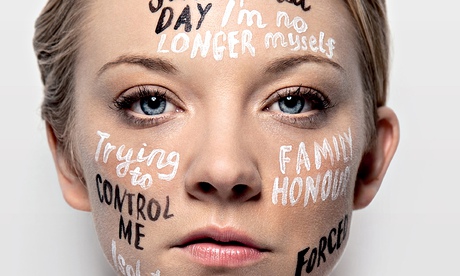Human Rights of Women
Source: The Guardian Despite new legislation and proactive policies such as quotas, the world is failing to deliver on equality between girls and boys, according to a report that calls for a sea change in attitudes across society as well as sustained, vocal support for grassroots movements.
"Across the world we are often 'talking the talk' of gender equality but we're too seldom 'walking the walk'," said Tanya Barron, CEO of Plan UK, which will release its report, Pathways to Power, in London on Tuesday.
 "It's too easy to assume that legislation will guarantee success," Barron added. "But this research shows that while approaches like quotas can help, real change is brought about at the grassroots – and that's why everyone has a part to play."
"It's too easy to assume that legislation will guarantee success," Barron added. "But this research shows that while approaches like quotas can help, real change is brought about at the grassroots – and that's why everyone has a part to play."
In its report, Plan said energetic global campaigning, led by young women, proved that – when people worked together on a particular issue – action could make a difference.
"International and national laws provide a crucial framework, but grassroots activism will help change attitudes so those laws are effective,"Alice Albright, CEO of the Global Partnership for Education, wrote in the report.
On Friday, Pakistan's Malala Yousafzai, perhaps the most famous grassroots campaigner for girls, was awarded the Nobel peace prize, anhonour she shared with the Indian children's rights activist Kailash Satyarthi. Yousafzai, 17, who survived an assassination attack by the Taliban in 2012, campaigns for the right of girls to have an education.
Plan's report, which is part of its Because I Am a Girl campaign, was launched to coincide with the international day of the girl child on 11 October.
The study sought to identify actions that could shift unequal power relations. It also investigated whether power always protects the status quo or whether it can be a force for positive change.
While the report acknowledged substantial progress, it warned that "warm words" on equality sometimes mask the reality that girls and women face barriers to accessing real power at home, at work or in politics.
"We shouldn't let the notion that we are now on some irreversible path to equality creep in. Scratch the surface, and across the world you'll find that girls' and women's pathways to power remain blocked," said Barron.
The report said a "curriculum of chores" still held girls back at home, while women and girls remain disproportionately affected by domestic violence. It pointed out that women make up just 22% of parliamentarians, while just 19 states have female leaders. In the 142 families tracked by Plan since 2007 as part of its Because I Am a Girl series, more than twice as many fathers as mothers had a skilled trade.
"If I was in charge ... I would get rid of the stereotype of women having to stay at home, doing the cooking and cleaning, taking care of the kids and not going out to work. I would get everybody to see that ... women can do anything and men can do anything, and it won't be seen as improper or disrespectful or wrong," Shoeshoe, a 16-year-old woman from Lesotho, was quoted as saying in the report.
The study argues that action is necessary at all levels of society.
"Girls' pathways to equality – their ability to exercise power over their lives – are only sustainable when accompanied by simultaneous change across all the institutions that surround them: the social institutions where norms, attitudes and behaviours are reproduced within the family and community; the legal, political and public institutions of the state; and the economic institutions and the world of work. This requires a process of radical social transformation," the report said.
Barron said there was cause for optimism, citing the example of theeveryday sexism campaign, which seeks to catalogue instances of sexism, as well as a drive opposing child marriage in Bangladesh.
"Girls are recognising wrongs to be righted and abuses to be ended, and are increasingly taking action into their own hands. We have to support them," Barron said.
In a high-profile push for men to join the debate and take action on gender equality, Emma Watson, the British actor and UN Women goodwill ambassador, launched the HeForShe campaign in New York last month. Watson argued that, for gender inequality to end, everyone needed to be involved.
"This is the first campaign of its kind at the UN: we want to try and galvanise as many men and boys as possible to be advocates for gender equality. And we don't just want to talk about it, but make sure it is tangible," Watson said.
Plan UK is calling for a standalone goal on gender equality to be included in the next set of internationally agreed development targets, which will be introduced when the millennium development goals expire in 2015. The organisation also proposes increased tracking of how girls and women are faring on the ground, through improved data collection managed by a new UN Commission.
